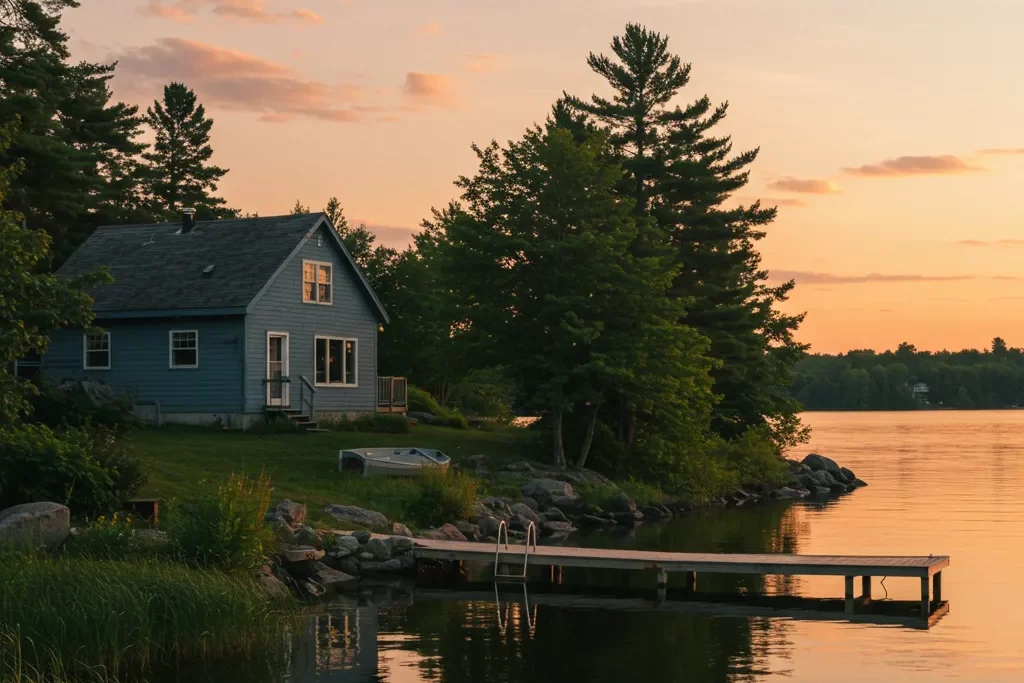

Question: What Are the Disadvantages of Living in a Cottage?
Answer: Some of the disadvantages of living in a cottage include: Cottages can be small, lack storage, require frequent maintenance, be isolated, and potentially have limited modern amenities.
Cottage Living: Exploring the Drawbacks
Cottage life evokes images of tranquil lakeside mornings and cozy evenings by the fire. Many people dream of escaping to a cottage. However, the reality of year-round cottage living can differ from the idealized vacation experience. This article explores the potential downsides of living in a cottage full-time. We will examine various factors, from property maintenance and accessibility to community considerations and potential lifestyle adjustments. Understanding these challenges can help you make an informed decision about whether cottage living aligns with your long-term needs and expectations.
Maintenance and Repairs
Cottages often require more maintenance than traditional homes. Exposure to the elements can accelerate wear and tear on the exterior. Seasonal changes necessitate specific tasks, like winterizing plumbing and closing up for the season or opening it back up.
Finding reliable contractors can prove challenging in remote areas. Tradespeople might have limited availability and charge higher prices due to travel distances.
Septic systems and well water require regular maintenance and occasional repairs. These systems add to the overall cost and effort of cottage upkeep.
Click here for more information on real estate offices near my Orangeville location
Related Article: Can I Gift My Cottage to My Children?
Related Article: All About Cottage Buying and Selling
Community and Social Life
Cottage areas often have smaller, close-knit communities. Integrating into these communities can take time and effort. Limited social activities and entertainment options compared to urban areas can be a drawback for some people.
Year-round neighbours may be few and far between. The sense of isolation can be significant, especially during the off-season.
Limited Amenities and Services
Cottages may lack easy access to essential services like grocery stores, hospitals, and schools. Shopping trips can involve significant travel time. Healthcare access can be limited, requiring travel to larger centres for specialist appointments.
Educational opportunities for children might be restricted to smaller, rural schools. Families might need to consider longer commutes or alternative schooling options.
Property Values and Resale
Cottage property values can fluctuate significantly depending on market trends and local development. Reselling a cottage can take longer than selling a traditional home due to a smaller pool of potential buyers.
Financing a cottage purchase can be more complex than securing a mortgage for a standard home. Lenders might require larger down payments or impose stricter lending criteria.
Lifestyle Adjustments
Cottage living requires adaptability and a willingness to embrace a slower pace of life. The quiet and solitude can be a significant change for those accustomed to urban living.
Dealing with wildlife encounters, insects, and other natural elements becomes part of daily life. Maintaining a cottage requires more hands-on work and DIY skills.
Year-round cottage living demands careful consideration. Weighing the disadvantages against the appeal of a tranquil lifestyle is crucial for a well-informed decision.
Conclusion
Cottage living presents a unique set of challenges that contrast with the often romanticized image of idyllic retreats. While the allure of a peaceful escape is undeniable, prospective cottage owners must carefully consider the potential downsides. From increased maintenance demands and accessibility issues to limited amenities and potential social isolation, year-round cottage living necessitates practical evaluation. Understanding the financial implications, including property value fluctuations and potential financing complexities, is also crucial. The need for lifestyle adjustments, embracing a slower pace, and taking on more hands-on property management should not be underestimated.
Ultimately, the decision to live in a cottage full-time requires a realistic assessment of your individual needs, expectations, and long-term goals. By carefully weighing the advantages and disadvantages, you can make an informed choice that aligns with your desired lifestyle and ensures a fulfilling cottage experience, free from unexpected surprises.


